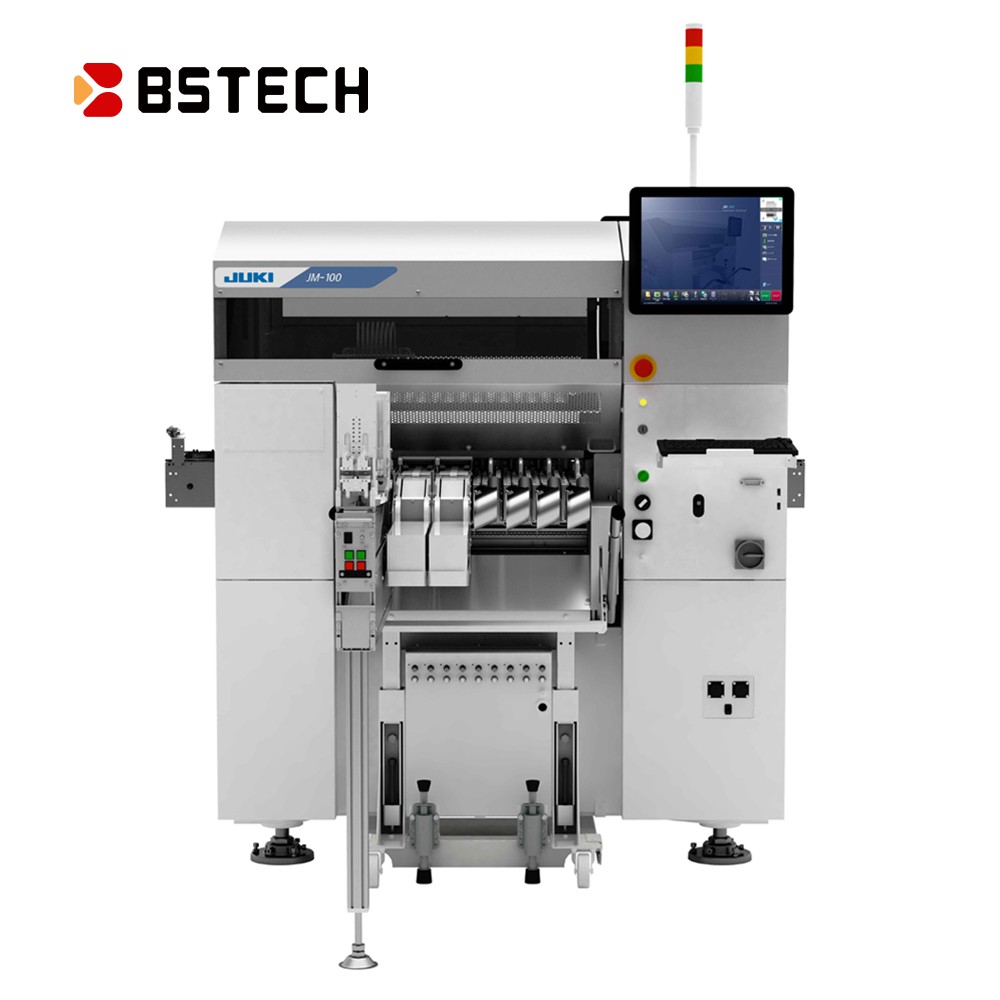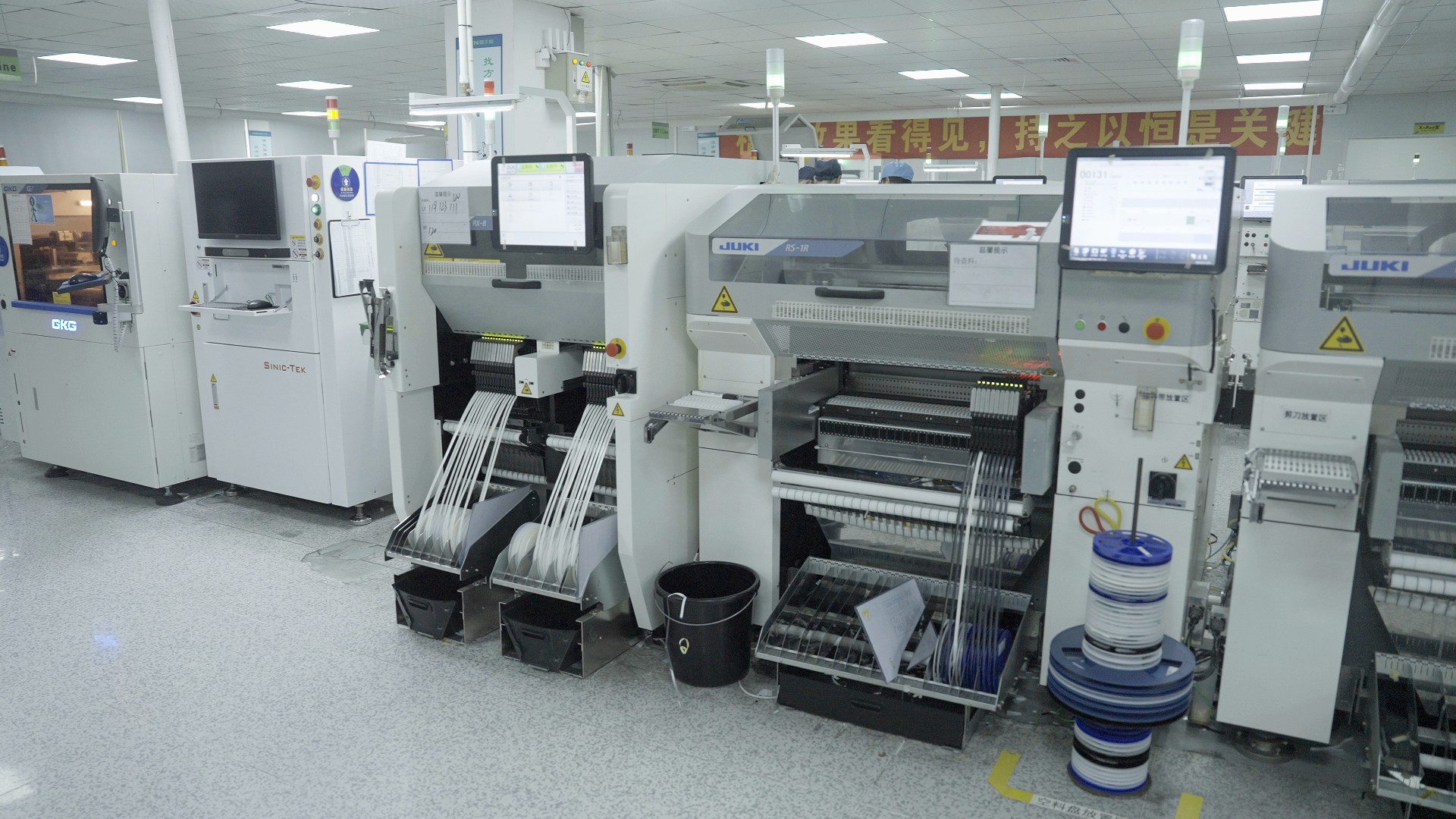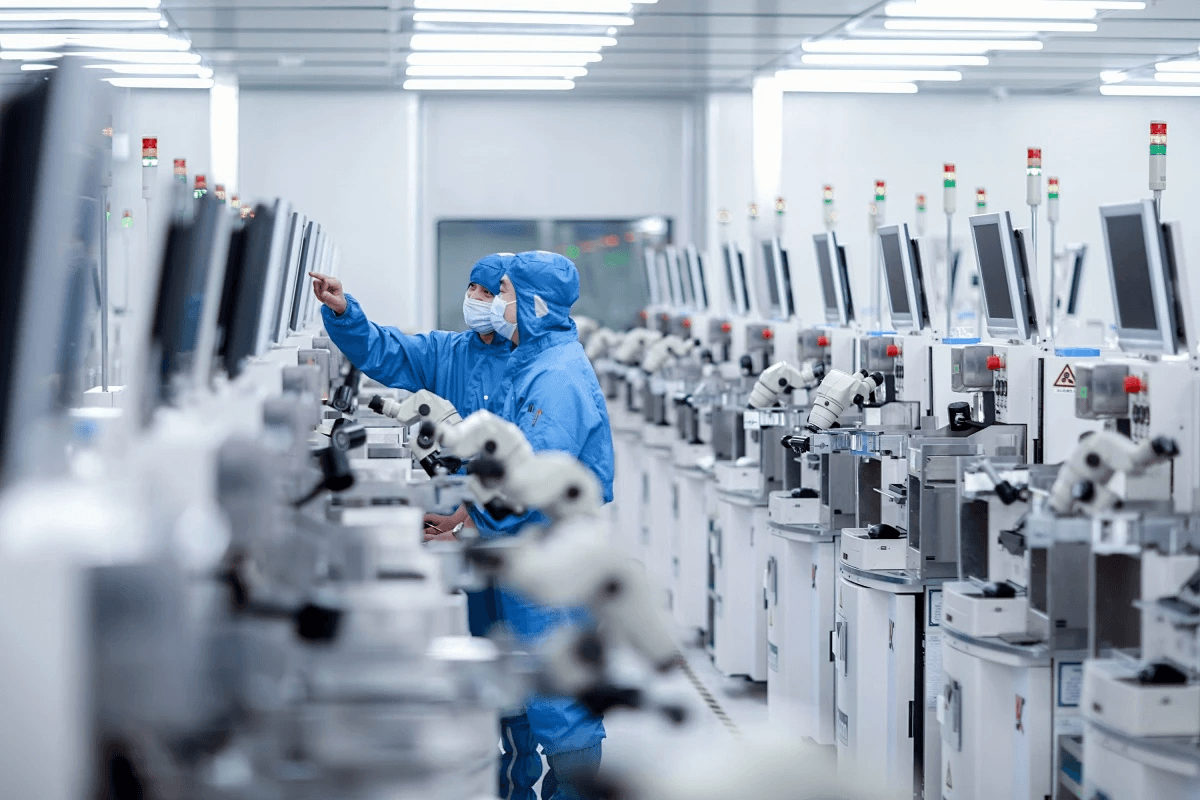Introduction

In the fast-paced world of electronics, the quality of circuit board manufacturing is paramount. This is where PCB testing machines come into play, ensuring that every circuit card assembly meets stringent standards before reaching consumers. With the increasing complexity of PCB manufacturing and assembly processes, investing in reliable testing equipment has never been more critical.
The Importance of PCB Testing Equipment
PCB testing equipment serves as the backbone of quality assurance in circuit board manufacturing. It ensures that each component functions correctly and adheres to specifications, ultimately reducing the risk of failures in end products. Without proper testing, manufacturers may face costly recalls or damage to their reputation due to faulty circuit board assemblies.
Key Features to Look For
When selecting a PCB testing machine, certain features are essential for optimal performance. Look for accuracy and precision in testing capabilities, as these will directly impact your production quality and efficiency in PCB manufacturing assembly. Additionally, user-friendly interfaces and connectivity options for data analysis can significantly enhance productivity during the pcb production and assembly process.
Why Choose Reliable Brands
Choosing reliable brands for your PCB testing equipment is crucial for long-term success in circuit board manufacturing. Established companies often provide better customer support and service options, ensuring that any issues with your pcb assembly and manufacturing processes can be swiftly addressed. Moreover, trusted brands typically invest in innovation, offering advanced solutions that keep you competitive in a rapidly evolving market.
Top PCB Testing Machines Overview

Best Options for Quality Assurance
Among the top contenders in PCB testing equipment, several machines stand out for their reliability and performance. Brands like Bensun Technology offer innovative solutions that cater to various needs within circuit board manufacturing, ensuring that every aspect of PCB assembly and manufacturing is covered. Whether it's automated optical inspection (AOI) or functional testing, these machines provide comprehensive quality assurance throughout the production cycle.
In addition to Bensun, other notable options include models from established brands known for their precision in testing capabilities. These machines are designed to handle high volumes while maintaining accuracy, making them ideal for businesses involved in large-scale PCB production and assembly. By investing in these high-quality PCB testing machines, companies can significantly reduce defects and improve overall product reliability.
Comparison of Cost and Performance
When evaluating different PCB testing machines, it's essential to balance cost with performance metrics. While some high-end models may come with a hefty price tag, they often deliver superior accuracy and speed that can justify the investment over time. Conversely, more budget-friendly options may suffice for smaller operations focused on basic circuit card assembly tasks but could fall short in rigorous quality checks required by larger manufacturers.
It's crucial to consider factors such as throughput rates and error detection capabilities when comparing these machines. For instance, an advanced machine might be more expensive upfront but could save costs in rework or returns due to faulty products down the line—something no business wants to deal with! Thus, understanding your specific needs within PCB manufacturing and assembly will help guide your decision toward choosing a machine that offers both value and performance.
Key Features of Leading Models
Leading models of PCB testing machines boast a variety of features designed to streamline operations while enhancing testing accuracy. One standout feature is advanced imaging technology that allows for detailed inspections at multiple angles—this capability is vital during circuit board manufacturing where even minor defects can lead to significant failures later on in production cycles.
Another important aspect is user-friendly interfaces that simplify operation for technicians involved in both manual and automated processes within PCB production and assembly lines. Connectivity options are also essential; many modern machines allow seamless integration with data analysis tools which help manufacturers track performance metrics effectively over time.
Finally, adaptability plays a key role; top models are designed to handle various types of PCBs used across different industries—from consumer electronics to automotive applications—making them versatile assets for any company engaged in circuit board manufacturing.
Bensun Technology: A Trusted Name

When it comes to PCB testing machines, Bensun Technology stands out as a trusted name in the industry. Their commitment to innovation and quality ensures that each circuit board is tested thoroughly for performance and reliability. With a range of advanced solutions tailored for PCB manufacturing and assembly, Bensun has become synonymous with excellence in circuit card assembly.
Innovative Solutions for PCB Testing
Bensun Technology offers innovative solutions that redefine the standards of PCB testing machines. Their equipment is designed with cutting-edge technology that enhances accuracy in detecting faults during the circuit board manufacturing process. This focus on precision not only streamlines production but also significantly reduces waste, making it a game-changer in PCB production and assembly.
The company’s unique approach integrates automation with user-friendly interfaces, allowing operators to easily manage complex testing protocols without extensive training. Furthermore, Bensun continually updates its technology to include features like real-time data analysis and remote monitoring capabilities. This commitment to innovation ensures that clients remain at the forefront of PCB assembly and manufacturing advancements.
Applications in Various Industries
Bensun's PCB testing machines are versatile enough to cater to a wide array of industries, from consumer electronics to automotive applications. In sectors where reliability is paramount, such as medical devices or aerospace systems, their equipment plays a crucial role in ensuring that every circuit board meets stringent safety standards. By providing efficient solutions for circuit card assembly, Bensun helps companies maintain high-quality benchmarks across their production processes.
The adaptability of their machines allows them to be utilized not just for general-purpose applications but also for specialized needs within the realm of PCB manufacturing and assembly. Whether it's high-frequency RF circuits or low-power devices, Bensun's technology addresses specific challenges faced by manufacturers today. As industries continue evolving toward more complex electronic designs, having reliable testing solutions becomes increasingly vital.
Customer Support and Service Options
Bensun Technology prides itself on offering exceptional customer support alongside its state-of-the-art PCB testing machines. Their dedicated team provides comprehensive training programs tailored to help clients maximize the potential of their equipment while minimizing downtime during transitions or upgrades in pcb production and assembly processes. This proactive approach ensures that users feel confident navigating any challenges they may encounter.
Furthermore, Bensun offers robust after-sales service options including regular maintenance checks and rapid-response troubleshooting assistance. This level of commitment fosters long-term relationships with clients who know they can rely on expert support whenever needed—essentially making them partners in success rather than just suppliers of machinery for circuit board manufacturing.
In an industry where precision matters greatly, having a trusted name like Bensun Technology on your side can make all the difference between mediocre results and exceptional performance.
Manual vs. Automated Testing Equipment

In the world of PCB testing machines, the choice between manual and automated testing equipment can significantly influence the quality and efficiency of circuit board manufacturing. Each type has its own set of advantages and disadvantages, making it essential for manufacturers to carefully consider their specific needs in PCB manufacturing and assembly. Understanding these differences can lead to better decision-making when investing in tools for circuit card assembly.
Pros and Cons of Each Type
Manual testing equipment offers a hands-on approach that allows operators to perform detailed inspections during the PCB production and assembly process. This method is often less costly upfront, making it an attractive option for smaller operations or startups focused on circuit board manufacturing. However, manual testing can be time-consuming and prone to human error, which might compromise accuracy in critical applications.
On the flip side, automated testing machines are designed for speed and precision, enabling manufacturers to conduct high-volume inspections with minimal human intervention. These machines excel in providing consistent results across multiple batches of PCBs, enhancing overall quality assurance in PCB assembly and manufacturing. Nonetheless, they come with a higher initial investment cost and may require specialized training for operators to manage complex systems effectively.
Impact on PCB Manufacturing Efficiency
The choice between manual and automated testing directly impacts efficiency within the PCB manufacturing process. Automated systems can drastically reduce cycle times by quickly identifying defects in circuit boards while maintaining high levels of accuracy—essential for meeting tight deadlines in production schedules. Conversely, while manual methods allow for thorough inspections that can catch subtle issues overlooked by machines, they often result in slower throughput rates that could hinder large-scale production.
Moreover, integrating automated solutions into existing workflows can streamline processes significantly; this is especially beneficial as demand increases for rapid PCB production and assembly across various industries. As manufacturers strive to enhance their competitiveness through improved operational efficiencies, understanding how each method affects overall productivity becomes crucial in selecting the right equipment.
Ideal Scenarios for Each Method
Manual testing equipment shines best in niche markets or low-volume productions where customization is key; it allows technicians to adapt their inspection techniques based on specific client requirements or unique designs within circuit card assemblies. This flexibility makes it ideal for prototypes or specialized projects where precision is paramount but volume isn't a concern.
In contrast, automated testing is most effective when dealing with high-volume runs where uniformity is essential—think mass-produced consumer electronics or automotive components requiring rigorous quality checks at every stage of PCB production and assembly. For companies looking to scale up operations without sacrificing quality assurance during circuit board manufacturing processes, investing in advanced automated solutions will yield significant long-term benefits.
Essential Features in PCB Testing Equipment
When it comes to selecting the right PCB testing machine, several essential features can make a significant difference in both efficiency and accuracy. These features not only ensure that the circuit board meets quality standards but also enhance the overall productivity of the pcb manufacturing and assembly process. In this section, we'll dive into three key aspects: accuracy and precision in testing, user-friendly interfaces, and connectivity options for data analysis.
Accuracy and Precision in Testing
Accuracy and precision are paramount when evaluating a pcb testing machine's performance. In circuit board manufacturing, even minor deviations can lead to significant issues down the line, affecting the entire circuit card assembly process. High-quality testing equipment ensures that every component is scrutinized with meticulous attention to detail, allowing manufacturers to maintain rigorous standards in pcb production and assembly.
Moreover, advanced technologies such as automated optical inspection (AOI) enhance the accuracy of tests by providing real-time feedback on defects or inconsistencies. This level of precision not only reduces waste but also increases confidence in the final product's reliability. Ultimately, investing in a testing machine that prioritizes accuracy will pay dividends through improved product quality and customer satisfaction.
User-Friendly Interfaces to Enhance Productivity
A user-friendly interface is another critical feature that can greatly impact productivity during pcb manufacturing assembly processes. When operators can easily navigate through various functions of a pcb testing machine without extensive training, it leads to faster turnaround times and less room for error. Intuitive controls allow teams to focus on what matters most—ensuring each circuit board meets industry standards.
Furthermore, modern interfaces often incorporate touchscreens with customizable layouts tailored to specific workflows within circuit card assembly environments. This flexibility not only streamlines operations but also allows for quicker adjustments during production runs. As a result, manufacturers can achieve greater efficiency while minimizing downtime associated with operator errors or misunderstandings.
Connectivity Options for Data Analysis
In today’s data-driven world, connectivity options are crucial for effective data analysis within pcb production and assembly environments. A robust pcb testing machine should offer seamless integration with other systems used throughout the manufacturing process—whether it's enterprise resource planning (ERP) software or cloud-based analytics platforms. This connectivity enables real-time monitoring of test results and overall production metrics.
Additionally, having access to comprehensive data allows manufacturers to identify trends over time that may indicate potential issues before they escalate into costly problems. By leveraging this data effectively, companies can optimize their processes further while ensuring high-quality standards are consistently met across all stages of circuit board manufacturing. Thus, investing in machines equipped with strong connectivity features is essential for staying competitive in an ever-evolving market landscape.
Future Trends in PCB Testing Technology

The landscape of PCB testing technology is evolving at an unprecedented pace, driven by innovations that enhance efficiency and effectiveness in circuit board manufacturing. As the demand for higher quality and faster production rates increases, manufacturers are turning to advanced solutions that integrate cutting-edge technologies. This section explores the future trends shaping PCB testing, focusing on AI advancements, smart solutions, and sustainability practices.
Advancements in AI and Machine Learning
Artificial Intelligence (AI) and machine learning are making significant strides in the realm of PCB testing machines. These technologies enable more accurate defect detection during circuit card assembly, reducing human error and enhancing overall quality assurance. By analyzing vast amounts of data from previous tests, AI algorithms can predict potential issues in circuit board manufacturing processes before they occur, ultimately streamlining PCB production and assembly.
Incorporating AI into PCB testing machines not only boosts precision but also allows for adaptive learning where machines improve over time based on real-world feedback. This means that as more data is collected during the pcb manufacturing assembly process, the systems become smarter at identifying anomalies or defects early on. Consequently, manufacturers can save time and resources while ensuring their circuit board products meet stringent quality standards.
Furthermore, these advancements pave the way for predictive maintenance schedules for equipment used in pcb production and assembly. By anticipating when a machine may fail or require servicing based on historical performance data, companies can minimize downtime—keeping their operations running smoothly while maximizing productivity.
Rise of Smart Testing Solutions
The rise of smart testing solutions marks a transformative shift in how circuit board manufacturing processes are approached today. These systems integrate IoT capabilities to provide real-time monitoring and analytics during pcb assembly and manufacturing operations. With smart sensors embedded within testing machines, manufacturers can gather critical data throughout the entire lifecycle of their products.
These solutions allow for seamless communication between various components involved in pcb production and assembly processes—facilitating immediate adjustments based on live feedback from tests conducted by automated systems. This level of connectivity ensures that any deviations from expected performance are promptly addressed to maintain high-quality output standards.
Moreover, smart testing solutions often come with user-friendly interfaces designed to enhance productivity without requiring extensive training for operators. As these tools evolve further with advancements like augmented reality (AR), technicians will be able to visualize complex data sets more intuitively—enabling quicker decision-making during critical phases of circuit card assembly.
Sustainability in PCB Manufacturing
Sustainability is becoming an essential consideration across all facets of pcb manufacturing and assembly as industries strive to reduce their environmental footprint. The integration of eco-friendly materials into circuit board designs is gaining traction alongside innovative recycling methods aimed at minimizing waste generated during production processes. Manufacturers are increasingly investing in sustainable practices that not only comply with regulations but also appeal to environmentally conscious consumers.
In terms of technology development, modern pcb testing machines are being engineered with energy efficiency in mind—utilizing less power without compromising performance or accuracy during tests conducted on assembled circuits or boards. This shift towards greener technology signifies a commitment not just to quality assurance but also to responsible resource management throughout the entire lifecycle of product development.
Furthermore, sustainability initiatives often extend beyond materials used; they encompass supply chain management strategies aimed at reducing transportation emissions associated with sourcing components needed for circuit board manufacturing projects globally. As manufacturers embrace these eco-conscious approaches within their operations—balancing profitability with planet-friendly practices—they position themselves favorably within an increasingly competitive market landscape focused on sustainable innovation.
Conclusion
In the fast-paced world of PCB manufacturing and assembly, selecting the right testing equipment is crucial for ensuring high-quality circuit board production. A reliable pcb testing machine can make all the difference in identifying defects early and improving overall efficiency. With a plethora of options available, understanding your specific needs will guide you toward the best choice.
Choosing the Right Testing Equipment
When it comes to circuit card assembly, not all pcb testing machines are created equal. It's essential to evaluate factors such as accuracy, speed, and user interface to find equipment that aligns with your production goals. Investing time in research can prevent costly mistakes and enhance your circuit board manufacturing processes.
Investment Value of Quality PCB Machines
Purchasing a top-tier pcb testing machine is not just an expense; it's a strategic investment that pays dividends over time. High-quality machines offer enhanced reliability and performance, reducing downtime during pcb manufacturing assembly operations. As you improve your quality assurance processes through better equipment, you'll see significant returns in customer satisfaction and reduced rework costs.
Keeping Up with Industry Innovations
The landscape of pcb production and assembly is continuously evolving with new technologies emerging regularly. Staying abreast of advancements like AI integration in testing can provide competitive advantages in efficiency and accuracy. By embracing innovation, manufacturers can ensure their circuit board manufacturing practices remain relevant while meeting increasing market demands.
